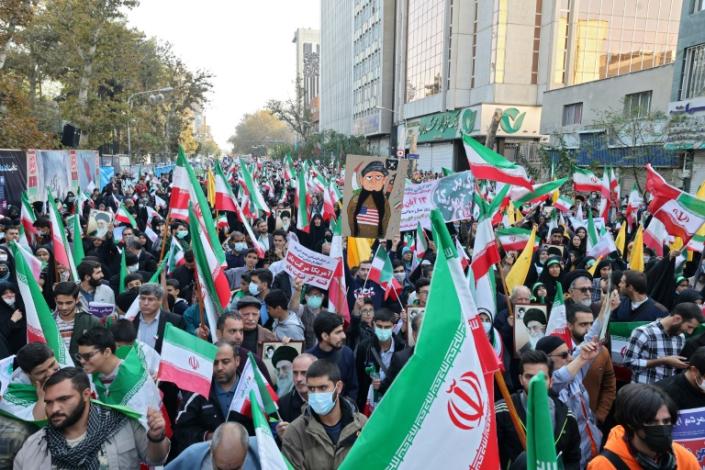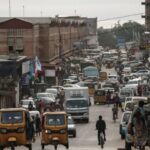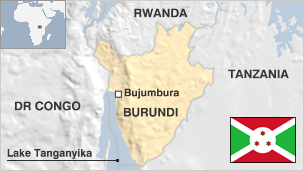
Iranian President Ebrahim Raisi on Friday dismissed a pledge from US leader Joe Biden to “free Iran” as the clerical regime faced a new upsurge in protests seven weeks into the anti-regime movement.
The protests began after the death of Mahsa Amini who had been arrested by the morality police. In their scale, nationwide spread, and anti-regime nature, the demonstrations have become the biggest challenge from the street to the authorities since the 1979 revolution.
Campaigning for mid-term elections in the US, Biden had said: “Don’t worry we’re gonna free Iran. They’re gonna free themselves pretty soon.”
But Raisi responded by saying: “The great people of Iran will not bow their heads to you”.
“Our men and women — our young men and young women are determined and we will never allow you to carry out your satanic desires,” he told a gathering commemorating the November 1979 takeover of the US embassy in Tehran by students.
“The enemy is today targeting our solidarity and national unity, our security, our peace and our determination,” Raisi said.
– ‘Radicalisation of protests’ –
The problems for Iran’s system under supreme leader Ayatollah Ali Khamenei, 83, are compounded by the tradition of holding mourning ceremonies 40 days after a death — known as “chehelom” — meaning each death can spark new protests six weeks on.
One of the biggest protest actions took place in the town of Karaj outside Tehran on Thursday where protesters marked the death of Hadis Najafi, 22, in September.
Images on social media showed a long column of protesters marching down a highway and then clashing with security forces who responded with live fire.
Several protesters themselves attacked the police, images published by the 1500tasvir monitor said, with a police patrol post set on fire and stones hurled into a car where blood-spattered officers were trapped.
A member of Iran’s Basij paramilitary force and two other unidentified people were killed, and 10 police officers and a cleric were injured Thursday during the clashes in Karaj, state media said.
There was no immediate indication of casualties among the protesters. Some on social media expressed unease over their tactics.
“The Islamic republic is the one responsible for the radicalisation of protests and violently suppressing protesters,” said Saeid Golkar, assistant professor with the University of Tennessee at Chattanooga.
“People are just reacting to the state’s brutal repression,” he told AFP.
Large numbers also shouted anti-government slogans at a memorial rally for protester Mahsa Mugoi in Fouladshahr outside the city of Isfahan, 1500tasvir said.
Images from the northern city of Tabriz showed protesters chasing away the security forces.
The state has responded to the unprecedented protest wave with what activists describe as a brutal crackdown. According to an updated death toll issued Wednesday by Norway-based Iran Human Rights, 176 people have been killed in the security forces’ response to protests sparked by Amini’s death.
Another 101 people have lost their lives in a distinct protest wave in Zahedan in the southeastern Sistan-Baluchistan province.
– Mass arrests –
The arrests have seen 1,000 people charged so far and, according to activists, at risk of the death penalty.
According to the New York-based Committee to Protect Journalists (CPJ), 54 journalists have been arrested, with a dozen confirmed released on bail so far.
The latest confirmed to be held is Nazila Maroufian, a Tehran-based journalist from Amini’s hometown of Saqez in Kurdistan province, who was detained on Sunday, the Norway-based Hengaw rights group said on Friday.
She had published an interview with Amini’s father in defiance of warnings from the authorities, the journalist wrote on Twitter before her arrest.
According to Hengaw, Saman Yasin, a singer originating from the Kurdish-populated city of Kermanshah in western Iran has now been charged with “waging war against God”.
This sharia-based charge known as “moharebeh”, frequently used in Iran against opponents of the regime, means the singer, arrested in October, could face the death penalty. Hengaw said he has supported the protests in songs and on social media.
Activists have also condemned as a forced confession a video published by state-run Iranian media of Toomaj Salehi, a prominent rapper arrested at the weekend after backing the protests.
The video shows a blindfolded man, who says he is Salehi, admitting to making “a mistake”.
There is also growing concern over the well-being of Wall Street Journal contributor and freedom of expression campaigner Hossein Ronaghi, who was arrested in September.
According to his family he is on a hunger strike with two broken legs sustained in custody.
sjw/it




